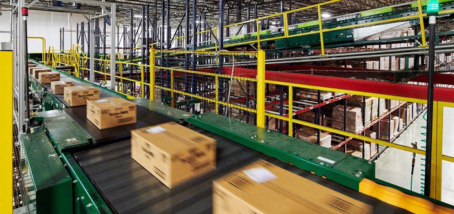-
BLACKOUT TECHNOLOGIES TARGETS TELEMATICS-INTEGRATED MOBILE DEVICE BLOCKING TO COMBAT SMARTPHONE DISTRACTION - 11 hours ago
-
Sparck Technologies awarded Royal designation - March 27, 2025
-
OpenADR Alliance announces first OpenADR 3.0 certified products with EVoke Systems, E.ON Energy and Universal Devices - March 25, 2025
-
Growing fulfilment and contract packer appoints new Managing Director - March 25, 2025
-
When is it time to invest in a WMS? Understanding the key trigger points - March 25, 2025
-
eCapital helps Vantage Recruitment on its journey to financial success - March 24, 2025
-
Hugo Beck Celebrates 70 Years of Packaging Innovation with Open House Events - March 20, 2025
-
PROLOG FULFILMENT SUPPORTS LUNA DAILY’S COMMITMENT TO BETTER BODY CARE FOR ALL WOMEN - March 19, 2025
-
Motion Ventures launches largest-ever maritime tech fund at $100M to meet the industry’s new pace of adoption - March 18, 2025
-
ITD GLOBAL APPOINTS GROUP CHIEF REVENUE OFFICER - March 17, 2025
Driven by the stay-at-home economy, e-commerce set records during the 2020 holiday season. A new study by the MIT Real Estate Innovation Lab: Logistics Real Estate and E-Commerce Lower the Carbon Footprint of Retail reveals the tangible environmental benefits of online shopping.
Aside from the immediate positive impact on emissions, the outlook of an increase of 80% in package delivery over the next decade combined with on-going innovations such as more effective planning, package innovations, smart buildings, electrification of vehicles and artificial intelligence (AI) can foster even more sustainable operations.
Dirk Sosef, Vice President, Research and Strategy, Prologis: “The annual e-commerce growth rate across Europe follows similar upward trends as seen in the US. In Europe, in-store shopping has a slightly smaller impact on emissions, due to a higher density of the brick and mortar network and the availability of the public transport facilities. Still, we will continue to see the strong positive effects of the innovations in e-commerce on emissions.”
Pre-holiday period European increases in annual e-commerce sales are reported to be 34% from November 2019 to November 2020, with variations for each country (source Eurostat).
Please see the full research here
































